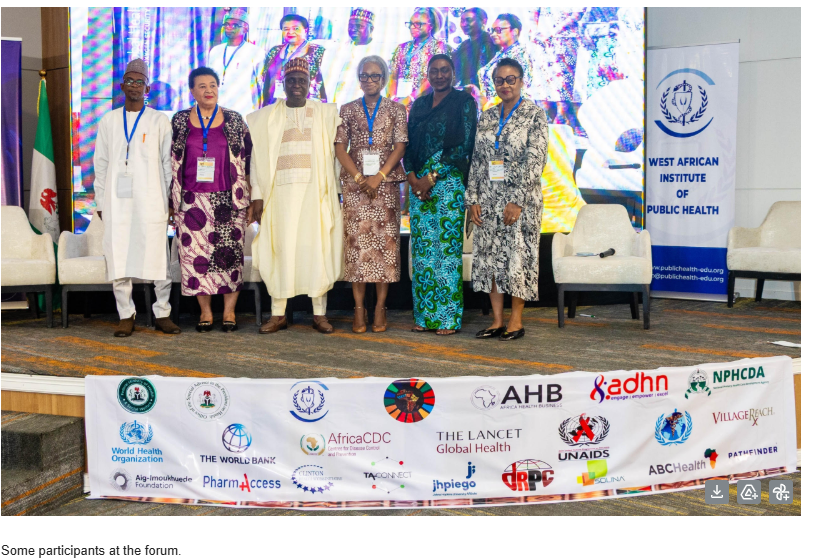511
By Daniel Adaji
The Aig-Imoukhuede Foundation has called for deeper collaboration between the public and private sectors to strengthen primary healthcare systems across Africa.
Speaking at the Africa Primary Healthcare Forum held in Abuja on July 14 and 15, 2025, the Foundation stressed that partnerships are key to closing gaps in healthcare delivery and reaching underserved communities.
Hosted by the West African Institute of Public Health (WAIPH), the forum convened health leaders and stakeholders from across the continent to explore practical solutions to Africa’s primary healthcare challenges.
As a faculty partner at the event, the Aig-Imoukhuede Foundation led a high-level plenary session titled “Public-Private Partnerships (PPPs): Leveraging Resources for Sustainable Health Systems.” The session examined how targeted investments and collaboration between government and private actors can drive sustainable improvements in healthcare.
In a statement on Wednesday, Executive Vice-Chair of the Foundation Ofovwe Aig-Imoukhuede said, “Solving Africa’s healthcare problems requires bold thinking and new approaches to funding. We’ve seen first-hand how public-private partnerships, when designed with clear goals and aligned with government efforts, can make a real difference and help build stronger, more resilient health systems.”
The Foundation’s perspective is informed by its work through the Adopt-A-Healthcare Facility Programme (ADHFP) which is a flagship initiative developed in partnership with the Private Sector Health Alliance of Nigeria (PSHAN).
Under the programme, the Foundation has committed N3bn to upgrade 23 primary healthcare centres across Nigeria. So far, four facilities have been fully revitalised, already showing measurable impact.
According to the Foundation, immunisation figures in those facilities jumped from 35 to 687 within just eight months—a 1,700% increase. More than 500 children under five have been tested and treated for malaria, and antenatal visits surged by 1,200%.
It noted that, there have been zero maternal and child deaths reported at the revitalised centres, highlighting the life-saving power of accessible, quality care.



